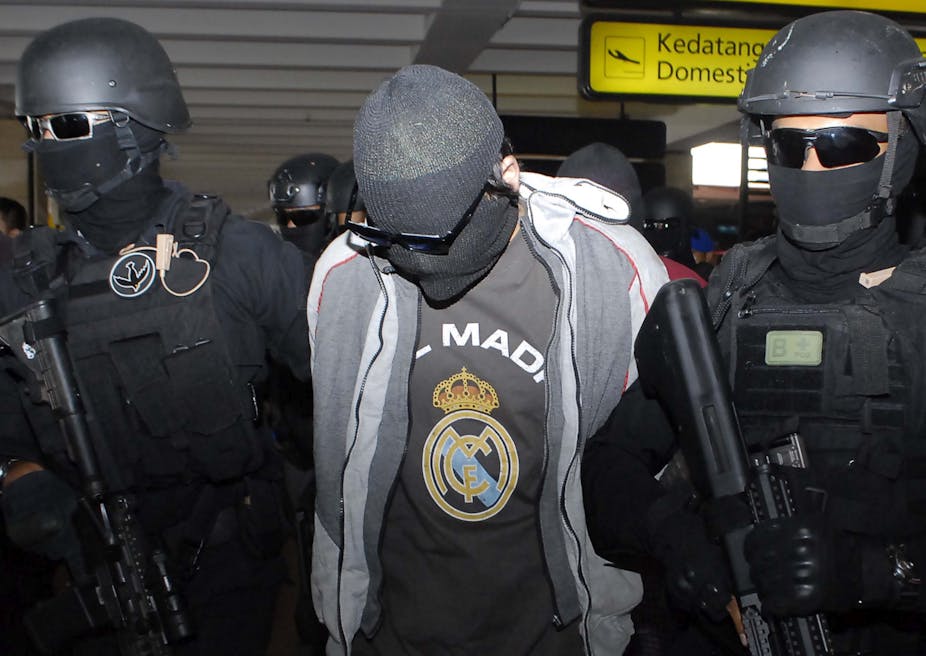Governments around the world are trying to come to terms with the fact that their nationals – and young people in particular – are leaving to join extremist groups such as Islamic State.
In response, ministers are threatening to remove their citizenship. Britain is planning to join military action in the areas controlled by IS but the battle against radicalisation is not one that can be won by military force or heavy-handed sanctions. In fact, that might make things worse.
The battleground against radicalisation is waged in the mind. It is here that persuasive arguments and passionate discussion appeal to the hero inside us to rise up and do something, be someone or make history.
Radicalisation begins like a seed and grows. It thrives best in the dark, best in isolation and best in soil that has been well manured. Foreign policy often provides a fertile bed of manure in which the seeds of radicalisation can grow. That’s not because foreign policy is manure but because it is easy to make it look as if it is. Negatively slanted, twisted and inaccurate accounts of any policy are difficult to challenge without lengthy investigation.
What is the UK’s foreign policy on Syria, for example? Those seeking to radicalise others will be able to summarise it in a single sentence. That sentence is likely to be accepted because it is difficult to find a simple counter argument. The more negative the policy is perceived to be, the less human the government or even British people are perceived to be.
This is important because radicalisation thrives when we start to see our enemy as less human than ourselves.
Us and them
The process of radicalisation involves getting us to focus on the negative experiences we have had and the negative experiences of those we love or should love. It asks us to provide an explanation for those things and when we can’t, it offers us one. These things happen to us because some enemy wants them to, chooses them to and allows them to. We then isolate ourselves from this enemy, focusing on the difference between us and them and emphasise the wrongs that they do.
And this in turn starts a process of dehumanisation in our minds. The apparently British IS fighter known as Jihadi John, for example, refers to David Cameron as a “lapdog” in the video showing the killing of hostage David Haines. He lays the blame for each of the killings squarely with British and American foreign policy.
Religion can also provide a simplistic, absolute framework behind which to hide from discussion, debate and accountability. It provides a foundation for difference. “Us” becomes people of the same religion and the “enemy” becomes anyone outside that group. The enemy is qualitatively different, not as human and maybe not even human at all – just a dog. This, for some, provides permission to use harm against others.
Years of peace talks in Northern Ireland have shown how important it is to undo narratives of difference to make progress. The sight of Ian Paisley and Martin McGuinness sharing a joke like regular people in 2007 has, in the wake of the former’s death, been cited as a symbol of change in the country. The more human we can make the enemy, the less we will feel separated from them. Only when we stop seeing the opposition as completely different to us, can we start to be reconciled with them.
Rational arguments are one way to contradict the line peddled by radicals. The UK’s policy on Syria has many dimensions. The British public is deeply committed to humanitarian and charitable support, as was made clear when £3.4m was donated to the cause in just 48 hours in March 2013. The government, on behalf of the taxpayer, donated £11.4bn in aid the same year, with £600m set aside for the Syrian crisis alone. These kinds of figures provide useful ammunition in the battle of the mind. The apparent enemy becomes less hostile and more human.
But reason alone will not win the battle for the mind. Some young people see no opportunity to get involved and make a difference other than by joining the jihad. It’s positive that young people are passionate about inequality, just not that they see violence as the only way to address it.
Perhaps this is where opportunity lies for the UK government. Shouting about the positive work it does internationally, offering young people the chance to make a positive contribution and acting transparently are all ways to counteract the messages being sent to young people by those who wish to indoctrinate them. An alternative needs to be offered on the other side, such as providing opportunities for young people to debate and engage in politics beyond casting a vote.
Military force is not the solution to this problem. At a recent sermon in my local church, we were told: “If, in order to defeat the beast, we become the beast; then the beast has won”. It’s not easy to rid people of firmly held prejudices but a consistent and reasonable argument is a better way to start than threats about removing passports or prison sentences.

